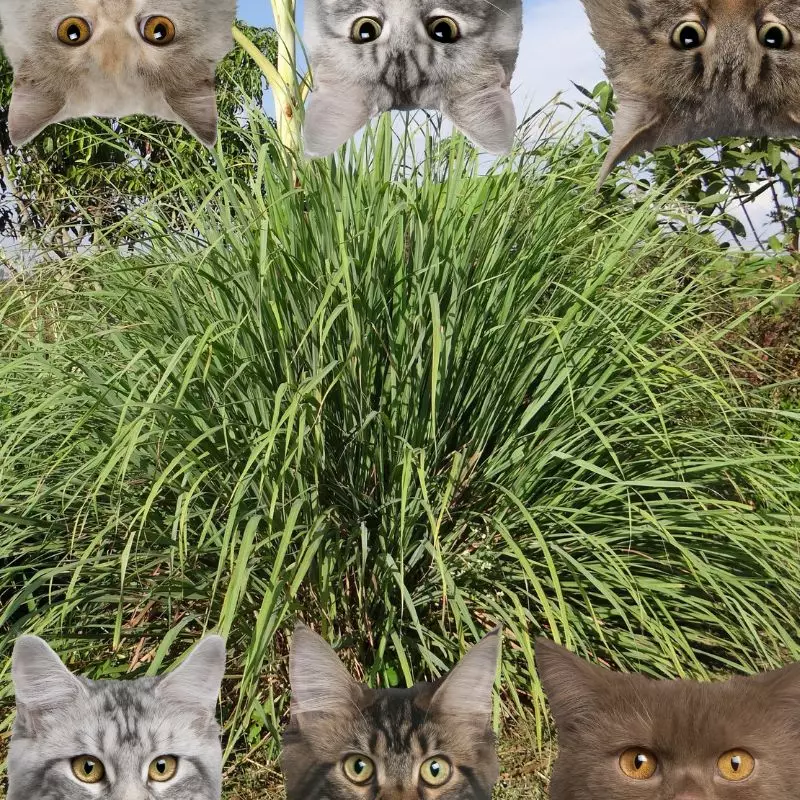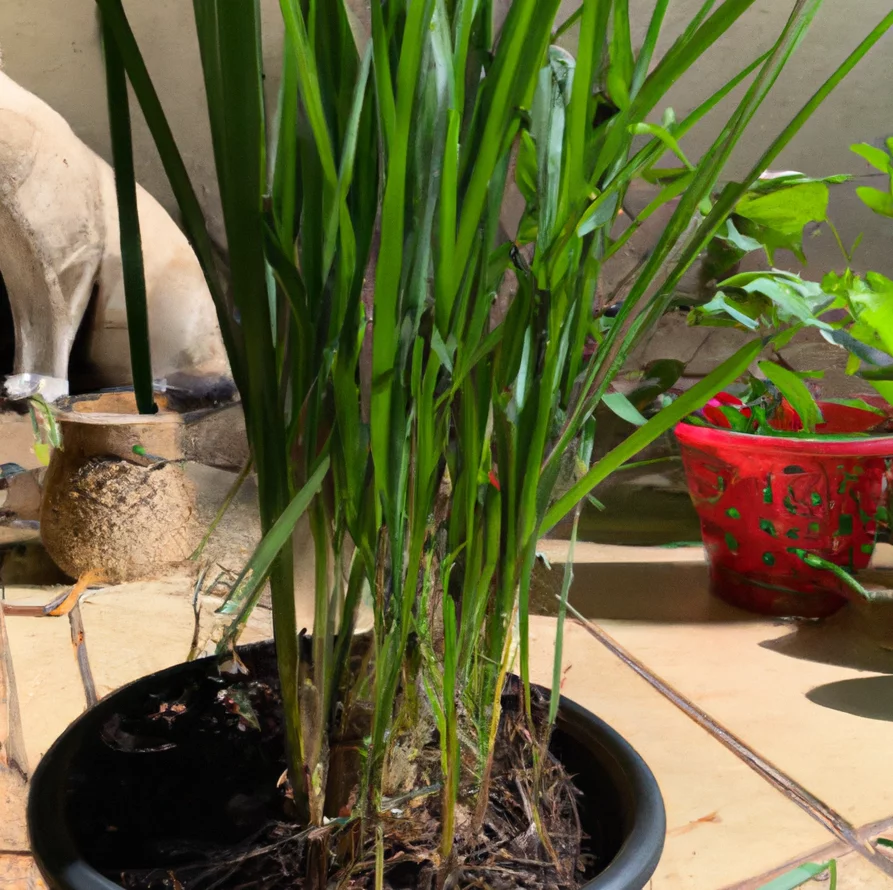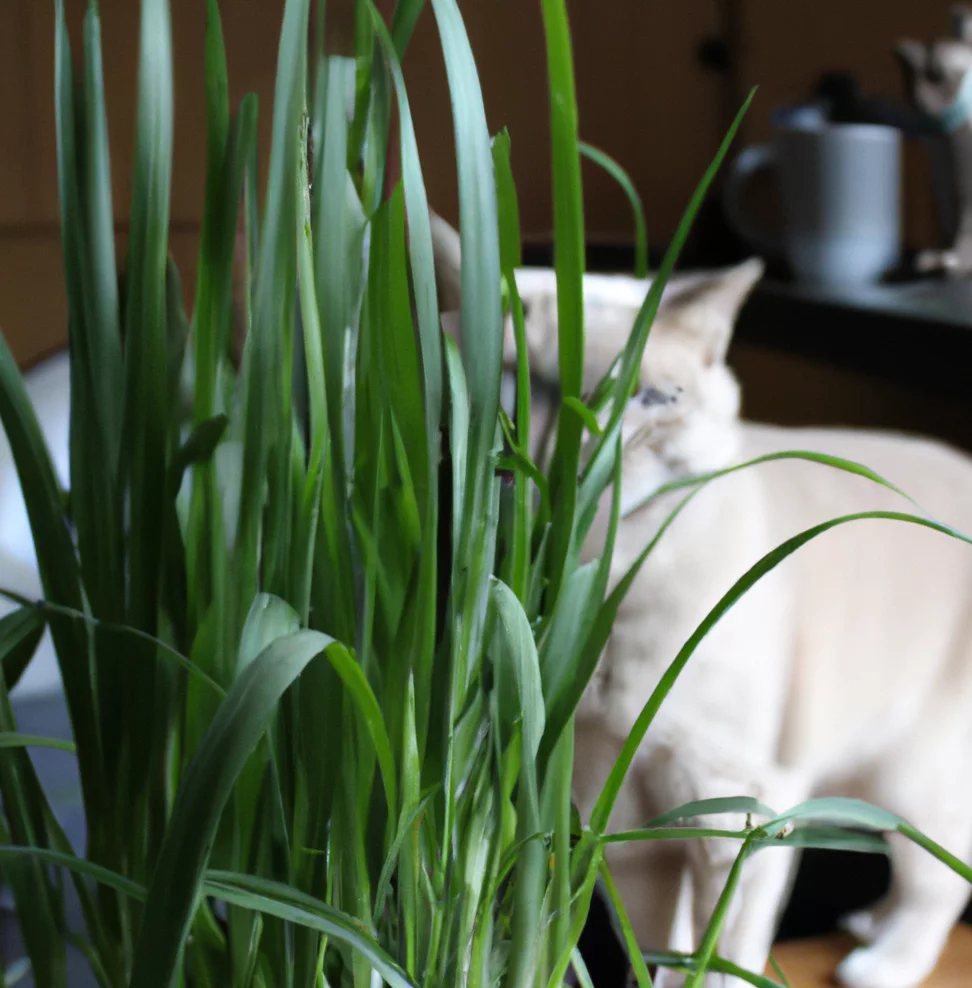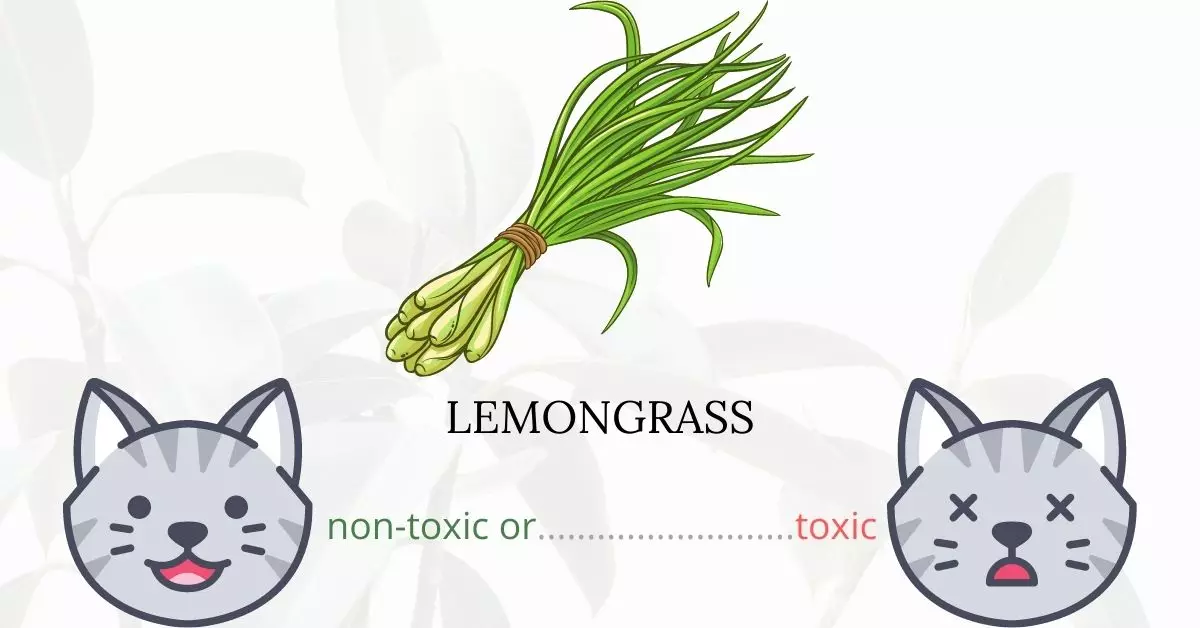Lemongrass, while beneficial for many purposes, can pose potential risks to cats when consumed in large quantities or in its essential oil form. Cats naturally lack enzymes that break down most essential oils, making lemongrass oil particularly hazardous.
This article is crafted in collaboration with a team of experienced DVMs (doctors of veterinary medicine). Their expert insights, combined with our thorough research from high-authority sources like the ASPCA and PetMD, ensure that we provide accurate and up-to-date information about the effects of lemongrass on feline health.
Clinical Signs of Lemongrass Poisoning in Cats

When cats come into contact with, smell, or ingest lemongrass, their bodies may exhibit several clinical signs as a reaction to the foreign substance. Understanding the reasons behind these symptoms can be essential for quick diagnosis and appropriate intervention. Here’s a breakdown of these clinical signs and their probable causes:
- Abdominal Pain: This can arise due to the irritation of the cat’s gastrointestinal tract. Ingesting lemongrass can upset the delicate balance of their digestive system.
- Vomiting: A direct consequence of the irritation in the stomach. The body’s natural response to expel harmful or foreign substances.
- Strains during Defecation: The digestive tract can become inflamed, leading to constipation or difficulty in passing stools.
- Swollen Abdomen: Gas may accumulate as a result of the digestive system’s distress, causing bloating or swelling.
- Fever: This is the body’s immune response to a potential threat. Ingesting harmful substances can trigger a fever as the body attempts to combat the perceived threat.
- Loss of Appetite: The cat might associate eating with the discomfort and pain, leading to a reduced desire to eat.
- Shock: In severe cases, a significant drop in blood flow can occur, leading to a state of shock. This is a critical condition that requires immediate veterinary attention.
- Chronic Cystitis: Ingesting harmful substances, including lemongrass, can cause inflammation of the bladder over time, leading to chronic cystitis.
- Hind Leg Weakness: As a reaction to the toxin, there might be neurological impacts causing weakness especially in the hind legs.
- Urine Leakage: The inflammation or irritation in the urinary tract can lead to involuntary leakage of urine.
- Inability to Eliminate Body Wastes: Due to the combined effects on the digestive and urinary systems, a cat may find it challenging to eliminate both feces and urine.
Should you observe any of these symptoms in your cat after contact with lemongrass, it’s essential to consult with a veterinarian as soon as possible.
First Aid and Treatment of Lemongrass Poisoning in Cats

The veterinarian will provide treatment according to the symptoms your cat is exhibiting. An IV hydration infusion, anti-nausea drugs, and anti-acids are some of the treatment options for a cat suffering from plant poisoning. If your cat is suffering from an intestinal blockage as a result of the amount of lemongrass consumed, the obstruction will need to be surgically removed.
In cases of lemongrass essential oil toxicity, your veterinarian will examine your cat’s liver function. This will need to be regularly monitored to ensure that liver damage does not develop. To reduce the chances of this happening, your veterinarian will induce your cat to vomit, wash out his stomach, and administer activated charcoal to absorb any toxin left in his body.
Recovery from Lemongrass Poisoning in Cats

Lemongrass toxicity in cats usually ends with complete recovery. If your cat’s illness is serious, recovery may take longer. If your cat has a strong need for lemongrass, it could be suffering from a nutritional shortage or disease. Bring your cat to the veterinarian for a thorough examination. They should resume eating a more typical diet after receiving the right treatment.
Prevention of Lemongrass Poisoning in Cats
Take out all of the lemongrasses from your house. Grow cat-friendly grasses instead that your cat can nibble on. This will lessen the chance that your cat will graze on lemongrass or other toxic plants.
If you love plants but have cats at home, check out these lists:





